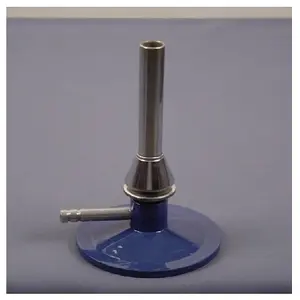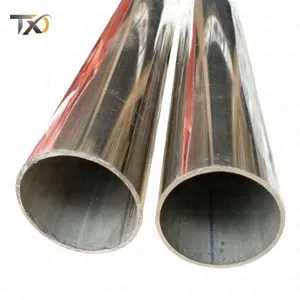
CLB-109 Teclu Burner Top Grade Nickel - Plated Brass Tube With Threaded Disc Wall Used For Laboratory Glass Work

Factory Price 201 304 316 Round Stainless Steel Tube 304 Welded Material Steel 316 Stainless Steel Pipes




Boiling tubes, essential apparatus in scientific research, serve a pivotal role across various disciplines. These specialized boiling test tubes are designed to withstand high temperatures, making them suitable for a multitude of experimental conditions. The construction of a boiling tube is tailored to meet the rigorous demands of laboratory work, ensuring reliability and consistency in results.
The choice of material for a boiling tube is crucial, with options ranging from hard glass boiling tubes to plastic variants. Hard glass, such as Pyrex boiling tubes, is often favored for its durability and resistance to thermal shock, making it ideal for high-temperature applications. Plastic tubes, on the other hand, offer a lightweight and often more economical alternative, suitable for specific types of assays where glass is not essential.
Within the realm of scientific experimentation, the application of a boiling tube varies. In biochemistry, for instance, boiling tubes used in laboratory settings are indispensable for polymerase chain reactions (PCR), requiring tubes that can endure the thermal cycling process. Similarly, in medical and biological research, culture tubes, a variant of the traditional test tube boiling apparatus, are utilized for cultivating tissues or storing blood samples, often designed for single-use to ensure sterility.
The features of a boiling tube extend beyond its material composition. Thin-walled designs enhance heat transfer, crucial for precise thermal applications. Additionally, the adaptability of boiling tubes to accommodate accessories like tube racks underscores their utility. These racks, available in materials such as corrosion-resistant stainless steel, facilitate organized storage and handling, mitigating the risk of breakage and contamination.
Selecting the appropriate type of glass for boiling tube use is a nuanced decision, balancing factors like thermal resistance, chemical compatibility, and cost-effectiveness. While affordability is a consideration, the longevity and reusability of glass boiling tubes often present a cost-efficient solution over time, despite the initial investment. In contrast, the convenience of disposable plastic tubes must be weighed against their recurring purchase requirements.
In summary, the boiling tube is a fundamental component of laboratory equipment, with variations such as chemistry boiling tubes and science boiling tubes tailored to specific research needs. The selection of a boiling tube, whether for educational purposes or advanced research, hinges on an understanding of the material properties, design features, and the intended application within the laboratory environment.